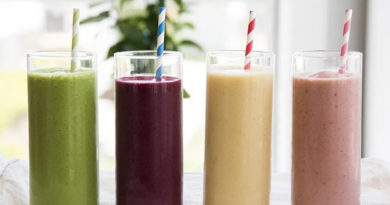Carbohydrates – Balancing Carbs by Reducing Sugars in Your Diet
On the top of the list of nutrients are carbohydrates. They include starches, fiber (complex carbohydrates) and sugars (simple carbohydrates). Depending on whether they contain additional useful nutrients or not, carbohydrates are divided into refined and unrefined carbohydrates.
Fruits for instance, contain simple sugars but because they contain other useful nutrients, they are included in unrefined carbohydrates.
Complex or Unrefined(Eat more) |
Refined or Simple(Eat less) |
| Wholegrain Cereals | Sugar, Glucose & Honey |
| Potatoes, Peas, Corn & Carrots | Jam & Confectionery |
| Legumes & Beans | Sweets & Biscuits |
| Fruits | Flavored Syrups |
| Oats, Maize, Wheat | Beer & Alcohol |
| Vegetable | Soft Drinks |
| Wholegrain pasta | Refined Flour |
Nutrient Debt
When sugar is taken into the body, the need for carbohydrate is met. The very real need for other nutrients, however, goes unmet, as sugar contains no protein, vitamins, minerals, fat or fiber. Sugar consists essentially of “empty calories” and eating refined sugar incurs a “Nutrient debt”.
Sugar is metabolized only through the use of all the accessory nutrients like vitamins and minerals. Under the circumstances, the continued consumption of refined sugar can result in the body becoming increasingly deficient in important nutrients.
Without the proper vitamins and minerals to facilitate the metabolism of the sugar and create a desire for exercise, much of the sugar is stored as fat. The result may be a bloated obesity in people who lavish themselves with too many sweets, soft drinks and desserts, incurring nutrient debts they cannot pay off. Nutrient debt, like the national debt can swell out of proportion if not controlled in time!
Don’t incur nutrient debts you cannot pay off! Don’t bite of more sugar than you can digest! Modern refined foods contain large amounts of sugar, so beware! It may sound contradictory, but obese people may actually be malnourished!
Reducing your sugar intake
a. Use dried fruits or dried fruit purees to take the place of sugar, particularly in desserts. b. Add fresh fruits as natural sweeteners in yoghurt and milk shakes. Unlike ordinary glucose, fruit sugar does not cause the blood sugar level to fluctuate (which causes fatigue) and is eminently suitable for active people. Use yoghurt recipes for Ice creams which uses natural fruits to sweeten yoghurt. c. Cut out sugar in hot drinks. Have mineral water or unsweetened fruit juice rather than sweet fizzy drinks. d. Eat sandwiches, sprouts etc. rather than biscuits or sweets. Try making whole wheat cookies. Biscuits are usually made of refined flour, sugar and butter which should be avoided.
Sugar versus sweeteners
Observe that throughout we have preferred to use a smaller quantity of sugar rather than using artificial sweeteners in an attempt to make the recipe lower in calories. Recent studies do not show an appreciable weight loss in people using artificial sweeteners for dieting. In addition, they are thought to create a craving for more sugar. Using a natural sugar substitute, like fruit or dried fruit puree satisfies these cravings and helps us to eat more natural foods.

